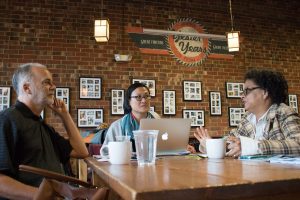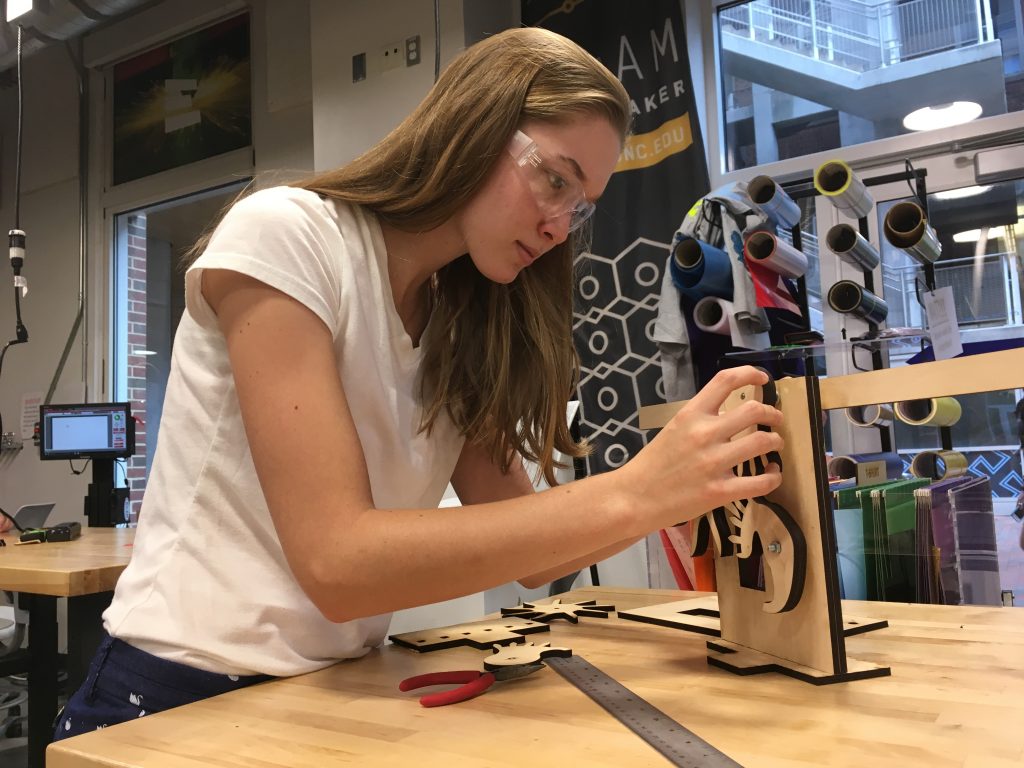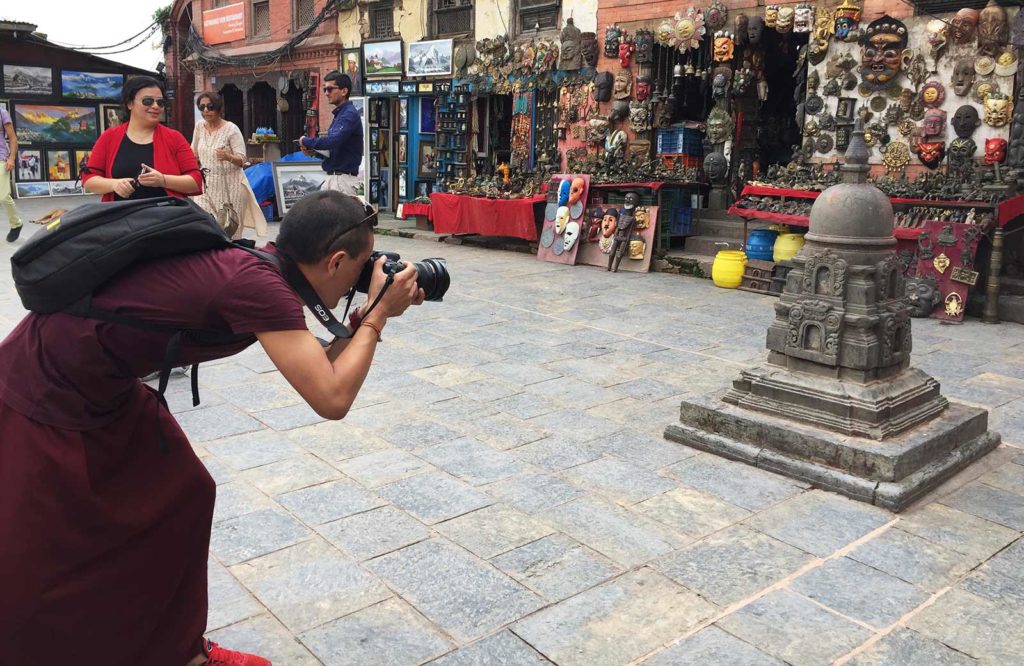
Three College of Arts and Sciences faculty members will team-teach a new course this spring that will explore issues of race, gender, sexuality and inclusion, highlighting topics such as racial profiling, gender discrimination, identity formation, social and environmental justice — and how these things intersect.
The course, “Intersectionality: Race, Gender, Sexuality and Social Justice” was created by professors Jennifer Ho in English and comparative literature, Frank Baumgartner in political science and Sharon Holland in American studies.
It will touch on events happening globally and nationally with a special emphasis on the U.S. South — including discussions around Title IX lawsuits, the fallout over HB2 and the recent violence in Charlotte, Ho said.
The idea of “intersectionality” is a core component of the course, Baumgartner said. It’s a term first coined by Kimberlé Williams Crenshaw, American civil rights advocate and Columbia Law School professor. In simple terms, it means “paying attention to all the complicated identities people have in their lives.”
“It’s not enough to talk about race or gender or ethnicity alone — you can’t look at one in isolation without the other. They are not just additive,” he said. “As it relates to public policy and government and social justice, governments are often accustomed to rules and policies that deal with one identity at a time.”
Baumgartner’s work began to incorporate race while conducting research for his book The Decline of the Death Penalty and the Discovery of Innocence, which won the Gladys Kammerer Award from the American Political Science Association. He is working on a second book on the subject with undergraduate students and teaches a course called “Race, Innocence and the End of the Death Penalty.”
“I realized you can’t avoid the topic of race when you’re talking about criminal justice in any form,” he said.
The diversity “super course” (a large course team-taught by faculty in two or more different disciplines) will be open to about 240 students from first-years to seniors. It will be cross-listed as No. 248 in the professors’ home departments and will fulfill the General Education curriculum requirements on U.S. diversity and communication intensive coursework.
Kia Caldwell, director of faculty diversity initiatives in the College of Arts and Sciences, said the course is modeled in part after the AIDS “super course” that has been taught on campus for many years. The creation of a diversity super course came out of work done by the Dean’s Faculty Diversity Advisory Group that Kevin Guskiewicz appointed shortly after becoming dean in January.
“We talked about the importance of reaching a large cross-section of students who might not typically take a course that focuses on these issues,” Caldwell said. “We also wanted to place areas of social identity, experience and marginalization in conversation with one another — topics that are often separated or not addressed simultaneously.”

Ho, whose second book, Racial Ambiguity in Asian-American Culture, won the South Atlantic Modern Language Association Studies Monograph Book Award, said she feels very comfortable talking about race in a college environment.
“I’ve spent a lot of time reading and thinking hard and theorizing about race,” she said. “Every fall, I teach a course called ‘Mixed Race America,’ and the goal is to have a productive conversation about race. I think one of the things this new course can do is provide both scholarship and stories.”
The course description quotes U.S. Census Bureau statistics — in the year 2020 “more than half of the nation’s children are expected to be part of a minority or ethnic group” and by 2044, “no one racial or ethnic group will dominate the U.S. in terms of size.”
As demographics are shifting in this country, students need to be intellectually prepared to deal with these changes, Holland said.
“Teaching a course in intersectionality isn’t for me about the political moment we’re in, it’s about future generations of students and scholars who in their lifetime will have four or five jobs, and one of those jobs might not be in the contiguous United States,” Holland said. “And that environment might be a challenge for some of our students who don’t understand how to speak across differences because they have a very soundbite attitude.”
The class will feature UNC faculty guest speakers such as Mai Nguyen in city and regional planning, Seth Kotch in American studies and Ariana Vigil in women’s and gender studies who have expertise in diverse topics. Outside speakers will also share their perspectives as well. They include Darryl Howard, who was recently exonerated after serving 27 years in prison for a crime he did not commit; Jennifer Thompson, co-author of the book “Picking Cotton” and president of Healing Justice; Lynden Harris, director of the performance group Hidden Voices; and environmental racism expert Allan Parnell of the Cedar Grove Institute for Sustainable Communities.
Small discussion sections will create opportunities for conversation and encourage interaction. Teaching assistant Gale Greenlee, a doctoral candidate in English and comparative literature, will lead one of these groups. Her dissertation focuses on black and Latino feminist writers and the depictions of girlhood.
“Students as well as faculty and staff need these kinds of spaces to come together and have dialogue, conversations that are uncomfortable sometimes, that are challenging and difficult, but are also necessary to help us function as a democracy,” Greenlee said.” I think this is an opportunity to do some rigorous work, for everyone in the room to dig deeper.”
Holland’s research focuses on feminist, queer and critical race theories. Her book, Raising the Dead: Readings of Death and (Black) Subjectivity, won the Lora Romero First Book Prize from the American Studies Association. She also hopes that students will also get a sense of how important social justice work is to the professors teaching the course.
“Students will see that we might differ in our opinions, and we’re constructing the course so we can have dialogue and conversation,” she said. “I always try to get students engaged by telling them there’s nothing to lose by asking really hard questions.”
By Kim Weaver Spurr, College of Arts and Sciences




